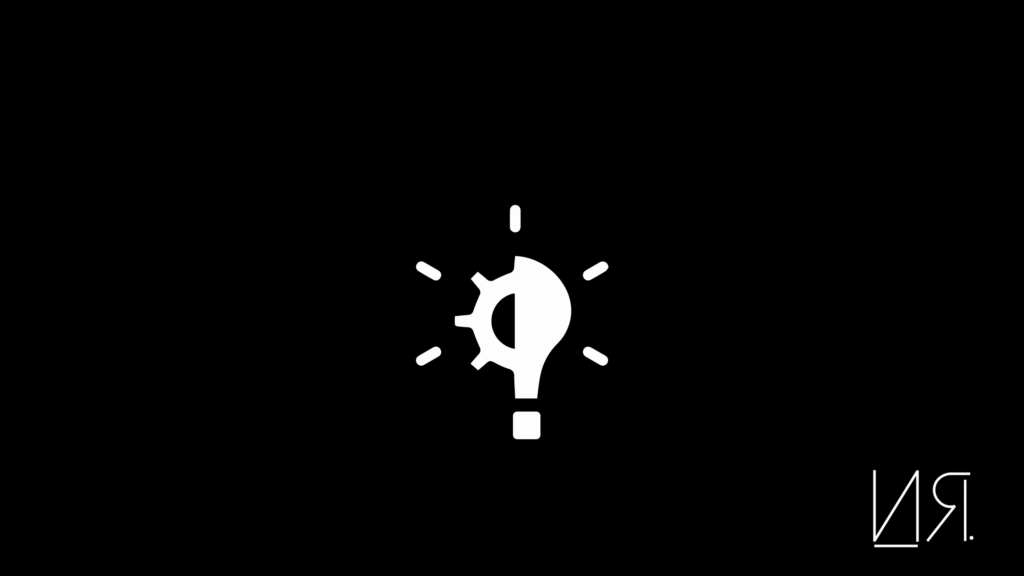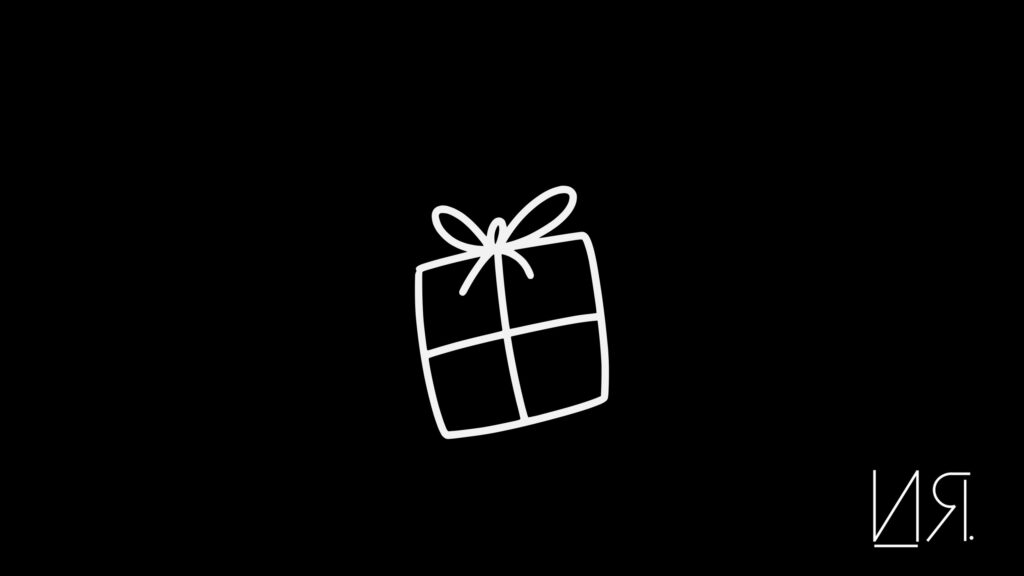The machines are about to take over your job.
Don’t wait for the robot security to escort you out of the building. Just pack it up and quit while you’re ahead.
That’s what it sounds like these days.
Everyone is so caught up with Artificial intelligence (AI). The alarmists are at it again.
Although it is very impressive how far we’ve come with these technologies and – yes some jobs will be replaced.
There is one thing that these efficient algorithms can’t do like us humans.
They don’t know how to be inefficient – and that’s a good thing for you.
Because our inefficient thinking is what makes us creative.
AND everybody is creative.
“It’s the mistake in our thinking, not the perfection, that separates us from the non-creative machines”
~ Tim Hartford, Neuroscientist
You might be running the wrong race.
Here’s the problem: we have been made to value efficiency over everything else. The more efficient you are, the faster the manufacturing process line can go.
These education and management systems were built to make us efficient robots and factory workers, stifling our creativity.
We have upgraded the technology around us to be more efficient but we have not upgraded our thinking.
That’s why so many are so concerned about AI taking over their job, because they are competing with robots.
You can’t play the game of robots. You will lose.
You are not as fast.
You are not as efficient.
But there’s something you are good at that the robots can’t do.
It’s creativity.
It’s inefficient thinking.
However, most people don’t think they are creative. We’ve been made to believe creativity is something bestowed to a select few.
We are not given the tools in schools and at work to practice our creativity.
Most of us keep our heads down, constrain ourselves, and don’t fully actualize our unique and authentic selves.
When you don’t tap into this core that makes you a full human, you start to embody yourself as an object that the world is acting on.
Objectified to contort to whatever reality is cooked up by others.
Once you believe that you cannot participate in the active and creative transformation of the world.
Checkmate. It’s done.
The powers that be have you where they want you. Hopeless, while they develop their machines and algorithms to make you feel useless.
Hopelessness and uselessness. The perfect cocktail for you to go in the corner and start licking your wounds.
But before you start slamming your paws, asking for scooby snacks, let me throw you this bone first.
Your full creativity is waiting to be unleashed.
You just have to get comfortable with doing nothing and being inefficient.
Creativity is a practice.
So you’re going to have to practice like Iverson to get into the game.
Developing a creative practice will help you grab back your human dignity. You will feel more empowered to consistently transform your ideas to reality.
You will see all the new technological advancements as tools that can augment your capabilities – not as threats to your sacred and carved out position.
You will get comfortable with being uncomfortable. You’ll become a better problem-solver that can make change not only in your life but the life of others in your community – and the world.
Here are 7 ways to develop your creative mind:
1. Chill out
Do nothing and let your mind wander.
I know. It sounds counter-intuitive.
There’s a reason why so many “eureka moments” come at the most unexpected time. While going on a walk, hiking in nature, or taking a bath.
While doing a habitual task that doesn’t require too much attention, you have enough room in your attention space to hold different ideas.
When you let your mind wander, you give your mind the room to synthesize ideas and come up with new connections. This is called divergent thinking.
It’s different from the more focused – convergent thinking.
We need these two modes of thinking – divergent and convergent – to be more creative.
It’s important to give your mind this time and space to get into what Chris Bailey, author of Hyperfocus calls “Scatterfocus”.
Go for a walk, a run, take a break, and most importantly sleep. These break free up and recharge your attention space.
“Ideally take a break every 90 minutes of Hyperfocus. This is in line with your natural sleep rhythms”
~ Chris Bailey, Hyperfocus
Stop fretting. Don’t be a robot and stop “doing” all the time. Just BE.
Bake in breaks throughout your day and week. Get comfortable with doing nothing to boost your creative mind.
2. Glide across multiple projects
Start multi-tasking (but in slow motion).
“But Nifemi, I thought you said I should focus on one task at a time?”
Hold up. Put your pitchforks and cancel buttons away for a second.
Yes. Work on one task at a time.
But over a longer period of time, work on multiple projects to boost your creative mind.
The great creatives of our time do one thing the same way, they work on multiple projects at the same time.
They transpose ideas from one field to another.
“On average, the most enduringly creative scientists switched 43 times in their first 100 research papers. Seems like the secret to creativity is multitasking in slow motion. Through their life they multitask across each project, slowly.”
~ Tim Harford, Author, Journalist, the Undercover Economist
Now, one challenge with working on multiple projects is that it can get overwhelming.
Let organization be your friend. Put each source of inspiration in its separate box – physical or digital.
Tap into your interests and work on multiple projects. Open your mind up to concepts that can be interconnected and combined to foster your creativity.
Build your analogy repository and develop an organization routine to keep your process fine-tuned and less overwhelming.
3. Give yourself the permission to play
Stop being such a boring grown-up. Play like a child once in a while.
Curiosity is a key ingredient to creativity.
If you have been around a child you see how quick they are to create a new game, come up with a new world or story. They follow their curiosity.
Unfortunately, for the majority of us, this mindset is beaten out of us.
Foster a space to nourish your interests and curiosities.
When I wrote Press Play, I learned a lot about how important curiosity was in sparking the creative process of the entrepreneurs, designers, and musicians I interviewed.
They follow the curiosity spark and watch where it leads.
It’s not necessarily about passion, it’s more about what piques your interest and whether you are open enough to follow it.
Don’t hold creative self back. To be more creative, give yourself a child-like permission to play and follow your curiosity.
4. Escape your echo chamber
“Nowadays it’s so easy to be surrounded by convenient but non-inspiring opinions.”
~ Dr. Henning Beck, Neuroscientist.
I almost spilled the drink in my mouth when I heard that quote.
It’s funny but it hits so true.
You and I are prone to confirmation bias.
Confirmation bias is the tendency to interpret new evidence as confirmation of one’s existing beliefs or theories.
The more connected we are, digitally, the more likely we are funneled into convenient filter bubbles.
We soon start echoing and parroting similar opinions. This limits the repository of ideas and external stimuli that we’re exposed to, limiting our creativity.
Reinforced by the digital stimuli we are glued to, we start to take every tweet, LinkedIn post, whatsapp message like a nugget of genius.
We are so quick to cancel anything that doesn’t align our line of thinking. Efficiently creating more comfort for ourselves in our minds.
Challenge yourself to go outside your echo chamber. Have a healthy argument with your friend (without canceling them).
Open yourself up to different opinions and points of views that allow you to think differently.
This gives you more dots to connect in your brain and allows you to think outside your own box.
5. Make mistakes
Mistakes make you more human.
When I started making beats, I would google “how to make a beat like J Dilla”.
On producer forums I’d find witty response like: “To make a beat like J Dilla, your two ears have to be attached to J Dilla’s head”
“Oh. thanks for the help” I thought.
I later understood the wisdom in those statements years after.
Only J Dilla can make a beat like J Dilla.
He has his signature patterns. And what attracts a lot of us beat makers to his production style is how he can make a beat machine sound human.
Using intentional mistakes to humanize the music.
Machines and algorithms are efficient, they do not make mistakes.
We’re built on making mistakes.
It’s during those moments, we break the efficient thought pattern and make connections, see analogies, and tap into creative thinking.
When something is too perfect, it seems blaahhh and sometimes fake.
When we make mistakes we humanize ourselves to others.
Your strive for perfection might be holding your creativity back.
Practice the art of imperfection.
Be fine with making mistakes – it’s what makes you human.
Within that imperfection is a creative beauty that can only be revealed by you.
6. Practice deliberate consumption
Trashy content leads to trashy thoughts.
Divergent thinking happens when you synthesize the dots and make connections in your brain.
To have dots to connect, you have to collect them first. You have to expose yourself to external stimuli that fills up your mental bank.
A lot of us are just consuming stuff on autopilot – mindlessly!
We end up scrolling and being distracted by the novel thing without questioning how it affects the way we think and see the world.
Expose yourself to quality information and experiences that will feed your creativity.
Lead with information should have utility.
Ask yourself – is what I’m consuming useful, valuable, actionable, entertaining, or just trashy?
Limit the trashy stuff. You know it when you see it.
It’s not energizing. It’s like junk food. Nice for 3 seconds, bad for the long-term.
Consume quality information with intention.
This makes you an active participant in your creative process. Fill up your memory bank with valuable dots that you can connect down the line.
7. Detach from the outcome
It’s all about the journey.
Value long-term thinking over immediate validation of our ideas. Understand the social cost of going outside the box.
The people around you might not understand why you are doing something that seems so inefficient.
When I told people I was writing a story for my mixtape. I know the looks I got from a few people “Like really! is that what you are doing with a Stanford MBA?”
It seemed inefficient with no particular end. There was no way I could explain it besides me balancing my interests while I built my business.
I had no intention of publishing an award-winning sci-fi novel. I was fully detached from the outcome and focused on the process of “figuring it out”
You should know that the value of doing something different is hard to measure and you have to get comfortable with that.
Focus on the journey and not the outcome.
Creativity is a practice. It is about the process of discovering yourself within the world around you.
Final thoughts
Don’t think like an algorithm.
Try to break the thinking rules. Challenge your popular opinion.
When we think slower, is when we thrive. That’s why we understand the world and don’t just analyze it. That’s what makes us human.
Your creative and inefficient human way of thinking is what’s most needed right now – during this era of rapid technological change.
You can activate your creative thinking by giving yourself permission to play, taking necessary breaks, working on multiple projects, getting out of your bubble, making mistakes, consuming information with intention, and focusing on your journey.
You are unique and creative.
Tap into that energy to give you your edge against the machines.



